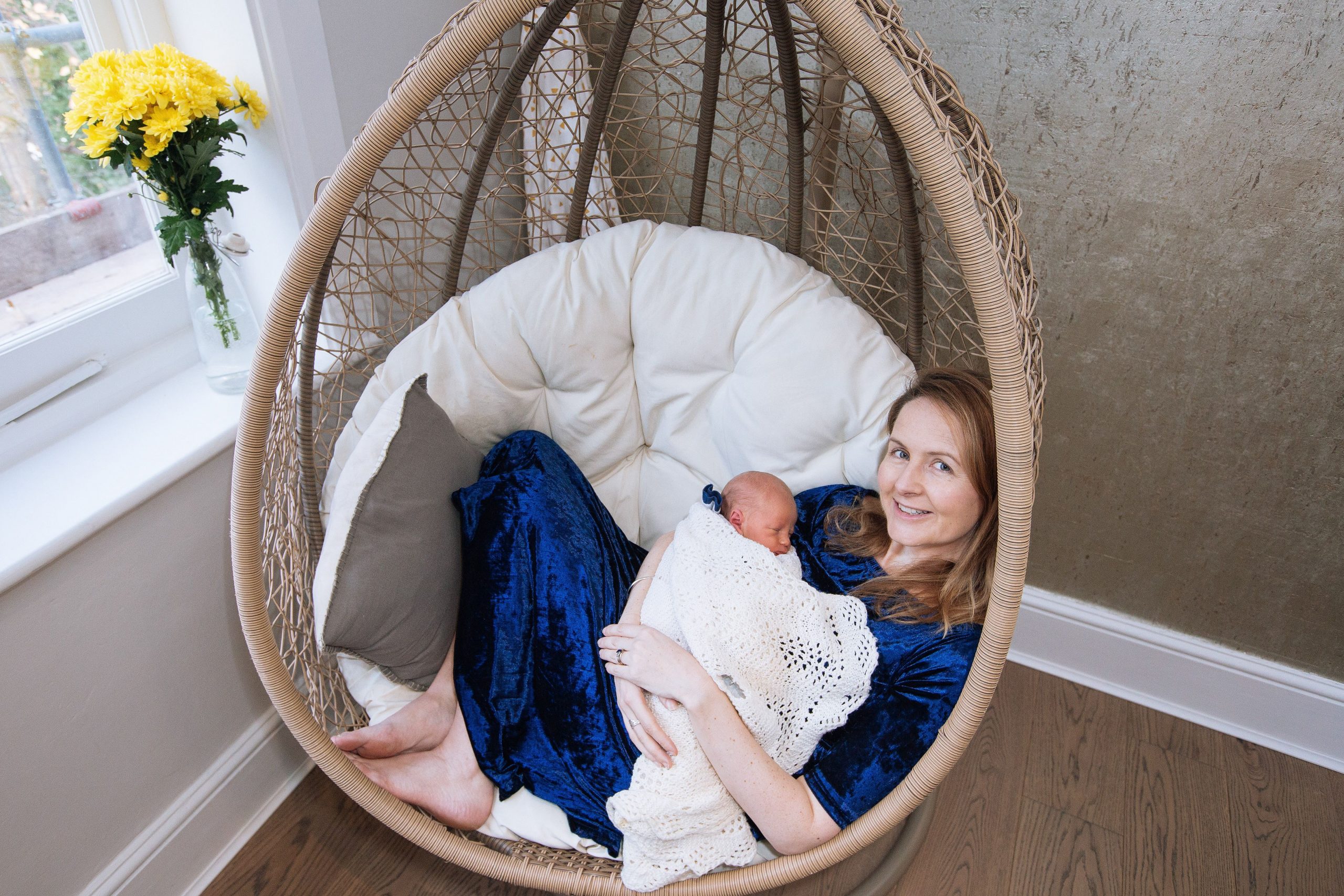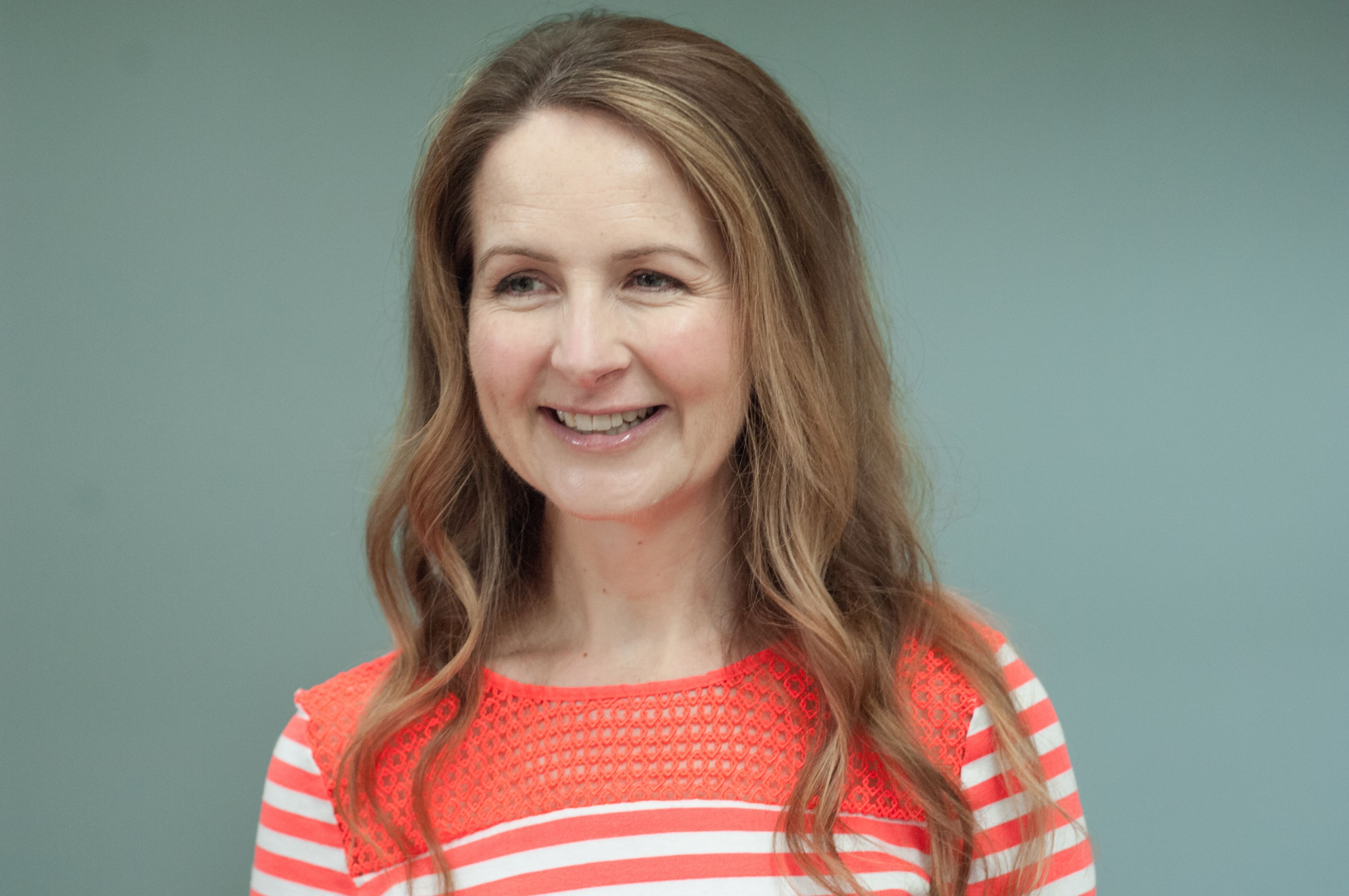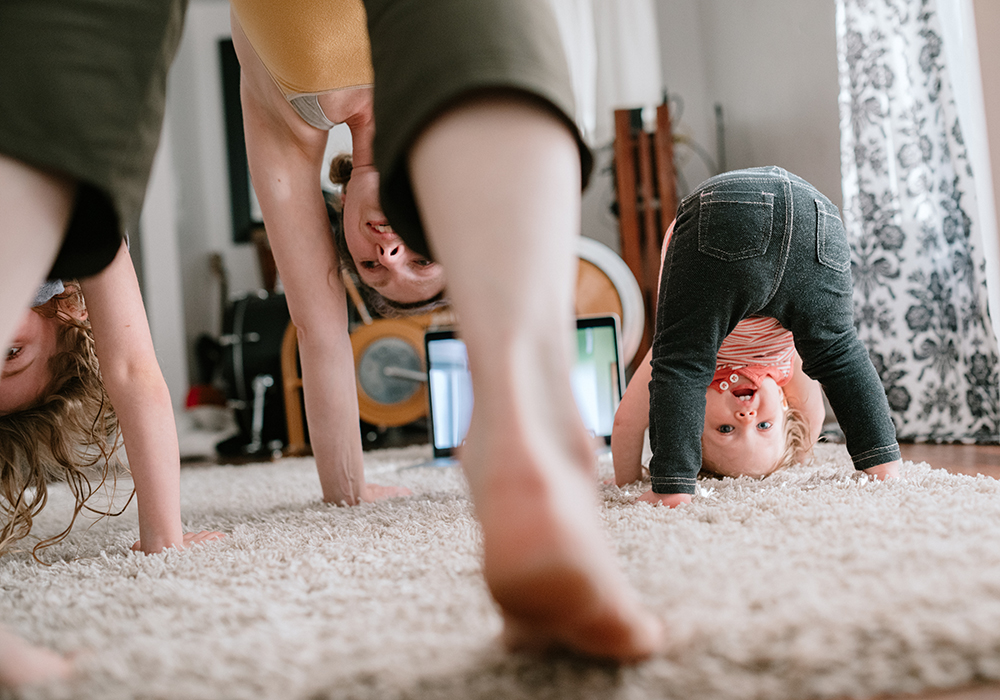Childcare CEO speaks out: "The government underfunds childcare, leaving women to pick up the slack"
Women have borne the brunt of the pandemic both at work and home. Fact. But now, with spiralling childcare costs and lack of effective government support for childcare services, parents and carers are under pressure like never before


Women have borne the brunt of the pandemic both at work and home. Fact. But now, with spiralling childcare costs and lack of effective government support for childcare services, parents and carers are under pressure like never before
This won't come as a shock to any parent reading this, but do you know childcare fees are one of the biggest expenses for parents or carers with young children? Yes, babies are cute but they're way more expensive than a designer handbag addiction. You'd better have deep pockets or better still a rather lavish saving accounts marked 'childcare costs', because until a child turns three in the UK, most parents don’t qualify for free childcare hours and must therefore pay full fees if they return to work.
We've written about the She-cession and how women's salaries and jobs have been disproportionally hit by the economic effects of the pandemic, yet according to Money Advice Service, childcare costs are up 2% in the past year, to an average of £263 a week for a full-time place and £138 a week for part-time care. That’s around £14,000 a year for just one child in full-time care (FYI: costs vary hugely around the UK). According to the Office for National Statistics, average earnings of £585 a week for adults in the UK, means childcare costs account for almost 40% of that income. Eyewatering isn't it.
Childcare chaos
Throw into this bleak maths lesson the fact that in January this year, the government announced a cut in funding to beleaguered childcare providers - a move the Early Years Alliance predicted could force one in four nurseries to close - and it's not hard to see how parents struggle to find affordable, flexible and work-friendly childcare solutions. It's a struggle Rachel Carrell knows only too well - from both sides.

When Carrell had her first baby she experienced first-hand how difficult and expensive it was to arrange childcare. So, she launched Koru Kids, which is now the the fastest growing child-care service in the UK and dedicated to building the world’s best childcare service. Carrell is urging the government to rethink their strategy and heavily invest in the childcare sector or the economy will suffer as a consequence - with many people (let's face it, mainly women) being pushed out of the workforce.
"It is surely obvious to every parent that childcare is essential infrastructure for modern living," she says. "It’s as important as our roads, our water pipes, our phone networks. But their actions (what the government spends money on) and the topics our leaders choose to talk about, seem to reveal that they don’t think it is terribly important at all. The government certainly doesn't fund our childcare system like critical infrastructure."
Carrell highlights the worrying gap in wrap-around care for schoolchildren and how research, by Koru Kids in April 2021, uncovered parents' concerns about this. "After-school childcare is a particular ‘hole’ in our childcare system," she says. "Our research found 70% of full-time working mothers said their schools' before and after-school club doesn't fully meet their family's needs. This has a massive impact on women’s careers: nearly 70% of women who work full time said that this will negatively affect their ability to work. And families lose out: Nearly half (48%) miss out on more than £2,400 a year, because their school doesn't provide the right wrap-around care."
Celebrity news, beauty, fashion advice, and fascinating features, delivered straight to your inbox!

Why is childcare seen as 'women's work'
With obvious holes in childcare provision and mainly women having to plug the gaps, Carrell is adamant that a male-heavy government was more concerned with saving pubs and football during the height of the pandemic than supporting a crisis-hit, cash-starved childcare sector. And that government mindset continues to this day. "Our childcare system was always inadequate, but the pandemic has made things even worse," Carrell claims. "With childcare providers shut for months, and many going out of business for good, the pandemic may have set back women’s careers and gender equality by decades.
"It’s so common as to not even be remarkable: it’s just expected that women will give up the careers they love and have trained for, in order to fill the holes in a childcare system that is more hole than system," she says. "And you know what happens when we have leadership structures without women in them? We save pubs and football, and forget about the nurseries and childminders. Is it because the childcare industry mostly supports women, and not men? Or is it because the childcare industry is run by women, and completely disrespected? Perhaps because there aren’t enough women at the top table in government? My suspicion is that it is all of these things - and that they are all related. Here’s how it works: We underfund childcare, and women pick up the slack."

What's the solution?
Carrell believes the solution is simple, yet she fears is currently still so out of reach: respect and fund childcare infrastructure properly.
"Imagine if we gave as much airtime to the holes in our childcare system as we did to the football?" she says. "Imagine if we funded childcare so childcare costs for parents are a few hundred pounds a year instead of thousands. Imagine if we built a system that worked for single parents, children with special needs, parents who work irregular hours.
"I believe in this vision so much that I quit my job to build it. My company, Koru Kids, has been building better childcare infrastructure for the past four years. We started with part-time nannies, and now we’re expanding into home nurseries too. But I can’t do it alone. Imagine if there were an army of us demanding better. Parents could fully participate. Our country would be transformed."
* You can find more info on Koru Kids at Korukids.co.uk You can also follow Rachel at @rach.of.koru.kids. Rachel has received numerous awards including ‘Inspirational Mother’ and ‘Best Businesswoman in Tech' and was elected a Young Global Leader by the World Economic Forum in recognition of her work.
Maria Coole is a contributing editor on Marie Claire.
Hello Marie Claire readers – you have reached your daily destination. I really hope you’re enjoying our reads and I'm very interested to know what you shared, liked and didn’t like (gah, it happens) by emailing me at: maria.coole@freelance.ti-media.com
But if you fancy finding out who you’re venting to then let me tell you I’m the one on the team that remembers the Spice Girls the first time round. I confidently predicted they’d be a one-hit wonder in the pages of Bliss magazine where I was deputy editor through the second half of the 90s. Having soundly killed any career ambitions in music journalism I’ve managed to keep myself in glow-boosting moisturisers and theatre tickets with a centuries-spanning career in journalism.
Yes, predating t’internet, when 'I’ll fax you' was grunted down a phone with a cord attached to it; when Glastonbury was still accessible by casually going under or over a flimsy fence; when gatecrashing a Foo Fighters aftershow party was easy-peasy-lemon-squeezy and tapping Dave Grohl on the shoulder was... oh sorry I like to ramble.
Originally born and bred in that there Welsh seaside town kindly given a new lease of life by Gavin & Stacey, I started out as a junior writer for the Girl Guides and eventually earned enough Brownie points to move on and have a blast as deputy editor of Bliss, New Woman and editor of People newspaper magazine. I was on the launch team of Look in 2007 - where I stuck around as deputy editor and acting editor for almost ten years - shaping a magazine and website at the forefront of body positivity, mental wellbeing and empowering features. More recently, I’ve been Closer executive editor, assistant editor at the Financial Times’s How To Spend It (yes thanks, no probs with that life skill) and now I’m making my inner fangirl’s dream come true by working on this agenda-setting brand, the one that inspired me to become a journalist when Marie Claire launched back in 1988.
I’m a theatre addict, lover of Marvel franchises, most hard cheeses, all types of trees, half-price Itsu, cats, Dr Who, cherry tomatoes, Curly-Wurly, cats, blueberries, cats, boiled eggs, cats, maxi dresses, cats, Adidas shelltops, cats and their kittens. I’ve never knowingly operated any household white goods and once served Ripples as a main course. And finally, always remember what the late great Nora Ephron said, ‘Everything is copy.’
